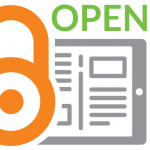This week is Peer Review Week 2021: Identity in Peer Review, and so we look at four articles covering diversity in peer review, getting early career researchers involved in peer review, a journal editor Q&A and a toolkit for open review. We also find out about Future Science Group’s plain language manuscripts and the different resources available to connect the metadata dots across the web.
Peer review week: diversity via Elsevier Connect | 4-minute read
Peer review is an essential element of the academic system, and an invitation to be a peer reviewer can be a mark of respect and often opens other doors for researchers to engage with journals. Directly addressing the lack of diversity in peer review – rather than dismissing it as a ‘pipeline problem’ – can lead to an increase in diversity in the ‘schools of thought’ that are represented by reviewers. Increasing diversity can improve academic rigour and expand a journal’s referee pool, ultimately leading to more efficient reviews and higher quality research.
Peer review week: early career researchers via PLOS Blogs | 4-minute read
Here, Madeleine Ball, Voice of Young Science member and PhD candidate, explains that blinding practices in peer review can help give early career researchers the confidence to review critically and honestly. Similarly, bringing peer review out from behind closed doors encourages openness and accountability. Additionally, preprints offer an opportunity for community-led peer review, as long as they are clearly identified as having not yet been formally peer reviewed.
Peer review week: journal editor Q&A via University of California Press | 6-minute read
In this interview with Editor-in-Chief Simine Vazire, we learn how Collabra: Psychology has adapted its peer review policy to be transparent and accountable. The entire peer review history of an article can be made public (at the discretion of the author), and handling editors are always named.
Peer review week: open review toolkit via PREreview | 2-minute read
The Open Reviewers Toolkit, published this week, is available for free download from Zenodo and consists of three guides: the Bias Reflection Guide, the Reviewer Guide and the Review Assessment Rubric.
PLSP 101 via Future Science Group | 2-minute watch
This short video from Future Science Group explains how they have taken plain language summaries to the next level by introducing standalone plain language manuscripts, known as plain language summaries of publications (PLSPs). These are secondary publications of a previously published scientific article that are peer reviewed, citable and discoverable with their own DOI. Most importantly, PLSPs are written in accessible language by the authors of the original scientific manuscript and may include patient authors to provide additional perspectives and to empower patients and foster dialogue. Find out more about Future Science Group’s PLSPs here.
Joining the dots with Octopus via Delta Think | 8-minute read
A new micropublishing platform called Octopus (which was recently referenced in a UK Research and Innovation policy statement) outlines eight different possible ‘content objects’ in the scientific literature that may be included in publications or exist as standalone elements:
- problem
- hypothesis/theoretical rationale
- method/protocol
- data/results
- analysis
- interpretation
- translation/application
- review.
In this News & Views piece, Heather Staines, Delta Think’s Director of Community Engagement and Senior Consultant, explores the different resources available to help identify, catalogue and promote the discoverability across the web of all the different content objects that may be associated with a study.
We at Open Pharma would like to continue to encourage all our readers to look after themselves and their community and to continue to follow advice from their country’s government and health organizations.
Coronavirus mental health and well-being resources:






